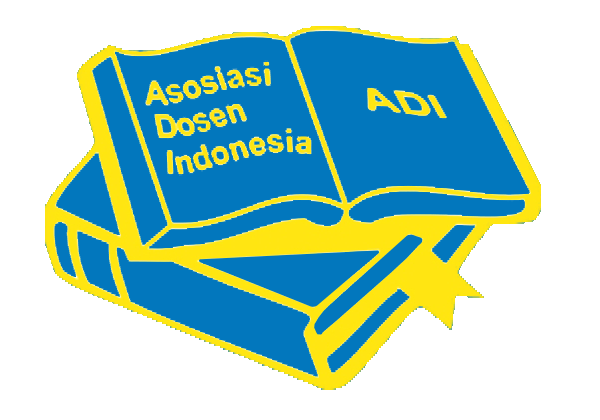Analysis of Coach’s Leadership Style on Individual Athlete Satisfaction
Abstract
The coach's leadership has a big influence on the athlete's motivation, enthusiasm, and self-confidence in achieving the set goals. An effective leadership style in a sports context has a significant impact on athlete motivation and performance. Therefore, it is important to understand athletes' perceptions and satisfaction with their coach's leadership style. This study aims to analyze the effect of the coach's leadership style on individual athlete satisfaction by using the Leadership Sport Scale (LSS) questionnaire to measure the coach's leadership style and the Satisfaction Scale For Athletes (SSA) questionnaire to measure athlete satisfaction. This study uses a quantitative descriptive with a survey test method. The sample in this study were Student-Athletes of UKM Pencak Silat UPI in the sparring category and the single art category and sparring category, totaling 40 people. The results of data analysis show that the coach's leadership style affects individual athlete satisfaction with a percentage of 58%. Based on the results of data processing and statistical analysis in this study, it can be concluded that there is a significant influence between the coach's leadership style and the satisfaction level of individual athletes.
References
Burns, G. N., Jasinski, D., Dunn, S. C., & Fletcher, D. (2012). Athlete identity and athlete satisfaction: The nonconformity of exclusivity. Personality and Individual Differences, 52(3), 280–284. https://doi.org/10.1016/j.paid.2011.10.020
Caliskan, G., & Ozge Baydar, H. (2016). Satisfaction Scale For Athlete (SSA): A Study Of Validity And Reliability. European Scientific Journal, ESJ, 12(14), 13. https://doi.org/10.19044/esj.2016.v12n14p13
Chelladurai, P., & Saleh, S. D. (1980a). Dimensions of Leader Behavior in Sports: Development of a Leadership Scale. In JOURNAL OF SPORT PSYCHOLOGY (Vol. 2).
Chelladurai, P., & Saleh, S. D. (1980b). Dimensions of Leader Behavior in Sports: Development of a Leadership Scale. Journal of Sport Psychology, 2, 34–35.
Chiu, L. K., Mahat, N. I., Hua, K. P., & Radzuwan, R. B. (2013). Student-Athletes’ Perceptions of Coaches’ Coaching Competency at the Malaysian Public Institution of Higher Learning. World Journal of Education, 3(1). https://doi.org/10.5430/wje.v3n1p13
Fouraki, V., Stavrou, N. A. M., Apostolidis, N., & Psychountaki, M. (2020). Coach and athlete leadership behaviors: Examining their role in athlete’s satisfaction. Journal of Physical Education and Sport, 20, 3212–3220. https://doi.org/10.7752/jpes.2020.s6435
Fraenkel, J. R., & Wallen, N. E. (2009). How to Design and Evaluate Research in Education.
Günel, İ., & Duyan, M. (2020). THE EFFECT OF SERVICE QUALITY ON ATHLETE SATISFACTION: AN EMPIRICAL RESULTS FROM SPORTS FACILITIES OF PUBLIC ORGANIZATIONS. European Journal of Management and Marketing Studies, 5(3). https://doi.org/10.46827/ejmms.v5i3.830
Hundito, B., & Professor, A. (2022). The Relationship Between Sports Commitment And Athlete Satisfaction In Sports Activities: Review of Related Literature. In International Journal of Research Padagogy and Technology in Education and Movement Sciences (Vol. 11, Issue 1).
Kavoura, A., Ryba, T. V, & Kokkonen, M. (2012). Psychological Research on Martial Artists A Critical View from a Cultural Praxis Framework.
Keshtan, M. H. (2009). The relationship between coach’s leadership styles and team cohesion in Iran football clubs professional league. http://redalyc.uaemex.mx/src/inicio/ArtPdfRed.jsp?iCve=93012708003
Khalaj, G., Khabiri, M., & Sajjadi, N. (2011a). The relationship between coaches leadership styles & player satisfaction in women skate championship. Procedia - Social and Behavioral Sciences, 15, 3596–3601. https://doi.org/10.1016/j.sbspro.2011.04.341
Khalaj, G., Khabiri, M., & Sajjadi, N. (2011b). The relationship between coaches leadership styles & player satisfaction in women skate championship. Procedia - Social and Behavioral Sciences, 15, 3596–3601. https://doi.org/10.1016/j.sbspro.2011.04.341
Khodayari, A., & Mohammadi, S. (2014). The Relationship Between Leadership Coaching Style and Team Cohesion in Team and Individual Sports 1 Data in Australian Journal of Basic and Applied Sciences · July 2013 CITATIONS 2 READS 2,795 The relationship between organizational culture and organizational trust in West Azarbayjan’s youth and sport administrations View project A Look to Fitness Industry in Iran View project. https://www.researchgate.net/publication/247777385
Kuga, D. J. (1993). Evaluating High School Coaches—Perceptions of Coaches and Student Athletes. Journal of Physical Education, Recreation & Dance, 64(6), 84–87. https://doi.org/10.1080/07303084.1993.10610011
Myers, N. D., Feltz, D. L., Maier, K. S., Wolfe, E. W., & Reckase, M. D. (2006). Athletes’ evaluations of their head coach’s coaching competency. Research Quarterly for Exercise and Sport, 77(1), 111–121. https://doi.org/10.1080/02701367.2006.10599337
Nikaien, Z., Ashraf Ganjouie, F., Tondnevis, F., & Kamkari, K. (2012). Effects of Leadership Styles on Coaches of Iran’s National Teams Success and Athletes’ Perception of Success. Scholars Research Library Annals of Biological Research, 3(3), 1225–1230. http://scholarsresearchlibrary.com/archive.html
Nizam Nazarudin, M., Sofian Omar-fauzee, M., & Lam Soh, K. (2009). Coaching Leadership Styles and Athlete Satisfactions Among Malaysian University Basketball Team. https://www.researchgate.net/publication/228981019
Rajabi, Z. (2012). Relationship of coach’s leadership style and player performance outcomes. In Pelagia Research Library European Journal of Experimental Biology (Vol. 2012, Issue 4). www.pelagiaresearchlibrary.com
Riemer, H. A., & Chelladurai, P. (1998). Development of the Athlete Satisfaction Questionnaire (ASQ). Journal of Sport and Exercise Psychology, 20(2), 127–156.
Shapie, M. N. M., Zenal, Z., Parnabas, V., & Abdullah, N. M. (2016). The Correlation between leadership coaching style and satisfaction among university silat olahraga athletes. Ido Movement for Culture, 16(3), 34–39. https://doi.org/10.14589/ido.16.3.4
Sungkowo, S., Winarno, M. E., & Setyawati, H. (2021). Identifikasi Kesehatan Mental pada Mahasiswa Jurusan Pendidikan Kepelatihan Olahraga FIK UNNES selama Pandemi Covid-19. Prosiding Seminar Nasional Pascasarjana Universitas Negeri Semarang, 455–458. https://doi.org/10.1515/pcssr
Tamminen, K. A., Sabiston, C. M., & Crocker, P. R. E. (2019). Perceived Esteem Support Predicts Competition Appraisals and Performance Satisfaction Among Varsity Athletes: A Test of Organizational Stressors as Moderators. Journal of Applied Sport Psychology, 31(1), 27–46. https://doi.org/10.1080/10413200.2018.1468363
Thelma Horn, B. (2003). Book and Resource Reviews • 369 The Sport Psychologist (Vol. 17).
Verner-Filion, J., & Vallerand, R. J. (2018). A longitudinal examination of elite youth soccer players: The role of passion and basic need satisfaction in athletes’ optimal functioning. Psychology of Sport and Exercise, 39, 20–28. https://doi.org/10.1016/j.psychsport.2018.07.005
Vidic, Z., & Burton, D. (2011). Developing effective leaders: Motivational correlates of leadership styles. Journal of Applied Sport Psychology, 23(3), 277–291. https://doi.org/10.1080/10413200.2010.546827
Copyright (c) 2023 Jp.jok (Jurnal Pendidikan Jasmani, Olahraga dan Kesehatan)

This work is licensed under a Creative Commons Attribution-ShareAlike 4.0 International License.
Authors retain copyright and grant the journal right of first publication with the work simultaneously licensed under a Creative Commons Attribution 4.0 International License that allows others to share the work with an acknowledgement of the work's authorship and initial publication in this journal.





.png)






